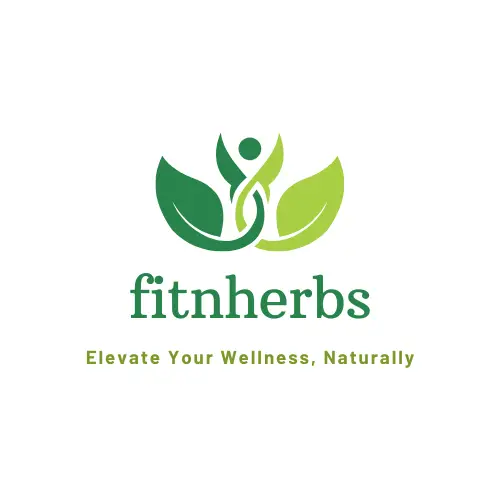Have you ever wondered how to get those good fats on a plant-based diet? It’s not about cutting out meat and dairy; it’s about ensuring you’re still getting the nutrients your body needs. Healthy fats are essential for keeping your heart, brain, and waistline in check. So let’s dig into how you can get these crucial fats without turning to animal products.
Key Takeaways
- Understand the role of fats in a plant-based diet and why they’re essential for health.
- Discover top plant-based sources of healthy fats like nuts, seeds, avocados, and olive oil.
- Learn about the importance of omega-3 fatty acids and how to include them in your diet.
- Get tips on cooking with plant-based oils and maximizing their health benefits.
- Explore how healthy fats contribute to overall wellness, including heart and brain health.
Understanding Healthy Fats in a Plant-Based Diet

The Role of Fats in Nutrition
Fats are crucial in our diet, providing energy, supporting cell growth, and helping the body absorb certain nutrients. They are also essential for producing hormones and protecting our organs. While some folks might shy away from fats, it’s necessary to know that not all fats are created equal. Healthy fats are vital for maintaining overall wellness and can be found abundantly in plant-based sources.
Common Misconceptions About Fats
There’s a lot of confusion around fats, with many people believing that all fats lead to weight gain and health issues. However, this isn’t the whole story. It’s the type of fat that matters. Saturated fats and trans fats are the ones to watch out for, while unsaturated fats, like those found in plants, are beneficial. The Low-Fat Plus diet, which emphasizes plant-based eating, has significantly reduced cholesterol levels, debunking the myth that all fats are bad.
Why Plant-Based Fats Matter
Plant-based fats are not only healthier but also packed with nutrients and antioxidants. They come from sources like nuts, seeds, avocados, and olives. These fats support heart health, reduce inflammation, and even manage weight. Incorporating these fats into your diet can lead to more balanced and nutritious eating.
Embracing plant-based fats can transform your health journey. They provide the necessary nutrients your body craves while keeping your heart happy and your waistline in check.
Top Sources of Healthy Fats for Plant-Based Eaters
Nuts and Seeds: Tiny Powerhouses
Nuts and seeds are small but mighty when packed in healthy fats. They offer a robust omega-3 fatty acids, protein, and fiber source. Almonds, walnuts, chia seeds, and flaxseeds are excellent options. Including various of these in your diet can boost heart health and provide essential nutrients. Here’s a quick list of some popular nuts and seeds:
- Almonds: High in vitamin E and magnesium.
- Walnuts: Rich in omega-3 fatty acids.
- Chia Seeds: Packed with fiber and omega-3s.
Avocados: The Creamy Superfood
Avocados are often celebrated as a superfood, and for good reason. They are loaded with monounsaturated fats, which are great for heart health. This creamy fruit is also a good source of potassium and fiber. You can easily add avocado to salads and smoothies or enjoy it with a pinch of salt.
Exploring the Benefits of Olive Oil
Olive oil is a staple in many kitchens and a fantastic source of healthy fats. It’s high in oleic acid, a monounsaturated fat known for its anti-inflammatory properties. Using olive oil can enhance flavor and provide numerous health benefits. For best results, choose extra virgin olive oil and store it properly to maintain its freshness.
Incorporating Omega-3 Fatty Acids into Your Diet
The Importance of Omega-3s
Omega-3 fatty acids are essential fats critical to maintaining our overall health. The body does not produce these fats, so we need to obtain them from our diet. They are known for supporting heart health, reducing inflammation, and even boosting brain function. Incorporating omega-3s into your diet can significantly impact your well-being, helping you maintain a balanced and healthy lifestyle.
Plant-Based Sources of Omega-3s
For those on a plant-based diet, there are several excellent sources of omega-3s to consider:
- Flaxseeds and flaxseed oil are rich in alpha-linolenic acid (ALA) omega-3 fatty acids.
- Chia seeds: Another great source of ALA, these tiny seeds can be added to smoothies, oatmeal, or yogurt.
- Walnuts: Not only are they delicious, but they are also a good source of omega-3s.
- Hemp seeds provide a balanced ratio of omega-3 to omega-6 fatty acids.
Balancing Omega-3 and Omega-6
While omega-3s are beneficial, it’s essential to maintain a balance with omega-6 fatty acids. Most people consume too much omega-6, leading to inflammation and other health issues. Here are some tips to achieve a better balance:
- Reduce intake of processed foods high in omega-6, such as certain vegetable oils.
- Increase consumption of omega-3-rich foods, like those mentioned above.
- Consider supplements if you cannot get enough omega-3s from your diet alone.
Eating a variety of plant-based omega-3 sources can help you achieve a healthier balance of essential fatty acids, promoting optimal wellness and reducing the risk of chronic diseases.
Cooking with Healthy Plant-Based Oils
Choosing the Right Oil for Cooking
Picking the right oil for your cooking needs can be tricky, especially with many options. Regarding plant-based oils, it’s all about understanding their smoke points. The smoke point is the temperature at which oil starts to smoke and break down, releasing harmful compounds. For high-heat cooking like frying, oils with a high smoke point, like avocado or refined coconut oil, are ideal. On the other hand, extra virgin olive oil, with its lower smoke point, is perfect for sautéing or drizzling over salads.
Health Benefits of Different Oils
Each plant-based oil brings its own set of health benefits to the table. Olive oil is rich in monounsaturated fats, which are great for heart health. Avocado oil is another excellent option, with vitamin E and healthy fats supporting skin health. Then there’s flaxseed oil, a fantastic source of omega-3 fatty acids essential for brain function. Choosing a variety of oils can help you get a broad range of nutrients.
Tips for Storing and Using Oils
Proper storage of oils is key to maintaining their quality. Here are some quick tips:
- Store oils in a cool, dark place to prevent them from going rancid.
- Keep them sealed tightly to avoid exposure to air.
- Use smaller bottles to ensure freshness, as oils can degrade over time.
Remember, the fresher the oil, the better the flavor and nutritional value. Incorporating a variety of plant-based oils into your diet can be a delicious way to boost your health while keeping your meals exciting.
For more on incorporating healthy oils into a vegan diet, check out our guide on healthy cooking oils that are primarily unsaturated and minimally processed and offer essential omega-3 fatty acids.
The Impact of Healthy Fats on Overall Wellness
Fats and Heart Health
We often hear that fats are bad for the heart, but that’s not always true. Healthy fats, particularly those from plant sources, can actually support heart health. Healthy fats like avocados, nuts, and olive oil can help manage cholesterol levels. These fats can reduce bad cholesterol (LDL) while boosting good cholesterol (HDL). For those following a heart-healthy plant-based diet, these fats are essential. They help maintain the elasticity of blood vessels and lower the risk of heart disease.
Fats and Brain Function
Our brains thrive on fats. Omega-3 fatty acids, in particular, are crucial for cognitive function. They help with memory and mood regulation and even protect against cognitive decline as we age. Plant-based sources like flaxseeds and chia seeds are excellent for these essential fats. Consuming these fats can lead to better mental clarity and emotional stability.
Fats and Weight Management
Contrary to popular belief, healthy fats can be allies in weight management. They are more satiating than carbohydrates, keeping you full longer and helping curb overeating. Including a moderate amount of healthy fats in your meals can aid in weight loss by preventing the cycle of constant hunger. Understanding caloric density is key here—fats are calorie-dense but can be part of a balanced diet when consumed wisely. This approach helps maintain a healthy weight without feeling deprived.
Healthy fats are not just about adding flavor to your meals; they’re about fueling your body and mind in the best way possible. Embrace them as a vital part of your wellness journey.
Debunking Myths About Fats and Weight Gain
Understanding Caloric Density

Meal Planning for Optimal Fat Intake
Planning meals that include healthy fats is essential for anyone on a plant-based diet. Start by ensuring that each meal incorporates a variety of food groups. Think of grains, legumes, fruits, and vegetables paired with nuts, seeds, or avocados. Here’s a simple plan:
- Breakfast: Oats topped with chia seeds and a handful of almonds.
- Lunch: Salad with mixed greens, cherry tomatoes, and a dressing made from olive oil and lemon.
- Dinner: Stir-fried tofu with vegetables in sesame oil.
Visualizing your plate can help. Aim for half of it to be colorful veggies, a quarter grains, and the rest plant-based proteins.
Combining Fats with Other Nutrients
Combining healthy fats with other nutrients can enhance your diet’s nutritional profile. For example, pair omega-3 rich flaxseeds with vitamin C-packed fruits like oranges or strawberries for a nutrient-dense snack. Mixing fats with fibers, like avocado on whole-grain toast, helps in better digestion and keeps you full longer.
Avoiding Unhealthy Fat Sources
Not all fats are created equal. While focusing on healthy plant-based fats, it’s crucial to avoid processed and trans fats found in many packaged foods. Read labels carefully and opt for natural sources like nuts and seeds. Remember, moderation is key—even with healthy fats.
“Balancing your diet with the right fats can transform your meals from ordinary to nourishing, without compromising on taste.”
For those maintaining a plant-based diet on campus, it’s vital to balance your intake of proteins, fiber-rich carbs, and healthy fats to meet nutritional needs.
Wrapping It Up: Embrace Healthy Fats for a Better You
There you have it! Getting the right fats on a plant-based diet is easier than you think. From avocados to nuts, seeds, and olive oil, these healthy fats boost brain function, support heart health, and keep your body running smoothly. So, add them to your meals and enjoy the benefits. It’s all about choosing the good, not just cutting the bad. Happy eating!
Frequently Asked Questions
What are healthy fats and why do we need them?
Healthy fats, like those from nuts, seeds, and avocados, are important for energy, brain health, and absorbing vitamins. They help keep your heart healthy and support wellness.
Can you get enough healthy fats on a plant-based diet?
Yes, you can! Foods like almonds, chia seeds, and olive oil are great sources of healthy fats for those following a plant-based diet.
Are all fats bad for you?
No, not all fats are bad. While some fats, like trans fats, can be harmful, others like unsaturated fats are good for your health when eaten in moderation.
How do omega-3 fatty acids benefit the body?
Omega-3s are essential for brain health, reducing inflammation, and supporting heart health. They are found in flaxseeds, walnuts, and algae-based supplements.
What is the best plant-based oil for cooking?
Olive oil is a popular choice for cooking because it contains healthy monounsaturated fats and has a good flavor. However, it’s best used at medium temperatures.
Can eating fats help with weight management?
Yes, eating the right kinds of fats can help you feel full and satisfied, which can prevent overeating and help with weight management.

